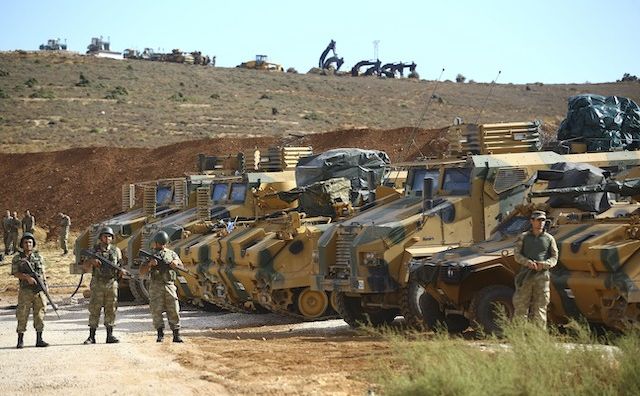The perpetual war
The truce brokered by Turkey and Russia in Syria has prevented a slaughter of the remnants of the Syrian opposition forces and scores of hapless civilians. This highlights the pragmatic attitudes of the two powers that have assumed key roles in the Syria conflict.

In a nutshell
- Turkey and Russia, the emerging key players in the Syrian conflict, are showing much-needed pragmatism
- The two averted a major humanitarian catastrophe in the opposition stronghold of Idlib by establishing a demilitarized zone there
- Ankara and Moscow may now hold the key to peace in Syria, but it will require curbing Iran’s ambitions to stabilize the region
Civil war has ravaged Syria for more than seven years. About 500,000 people have been killed, close to 2 million injured, some 5.6 million have sought refuge abroad and more than 6 million have been displaced internally. That means that more than 65 percent of Syria’s prewar population of 21 million is either dead or displaced. It is a horrible human tragedy.
The northwestern province of Idlib is the last outpost of the rebel forces. Syrian government troops have regained control of most of the country, with the exception of a Kurdish enclave. With Iranian and, mainly, Russian support, these forces are capable of retaking Idlib as well.
Turkey, however, acted to avert a potential bloodshed at the edge of the zone occupied by its forces. A truce worked out by Turkey and Russia in September has exempted the province from Russian-led attacks, provided a buffer zone shielding some 3 million people and is allowing evacuations. This prevents another humanitarian catastrophe in the tormented country.
Anatomy of failure
Syria’s needless tragedy resulted from a series of principalist politics on the local, regional and global level. An overreaction to relatively minor incidents of unrest during the Arab Spring turned Western opinion against the regime of Syrian President Bashar al-Assad. In conjunction with local warlords, Iran and Saudi Arabia launched a proxy war to dislodge him. The stubborn insistence by Western policymakers and the United Nations that “Assad must go” nipped in the bud all attempts at negotiating peace. The vacuum that emerged in vast areas of Syria during the war allowed the Islamic State (Daesh) terror group to establish itself there and commit unspeakable atrocities. To the dismay of the West, it took Russia’s intervention in the conflict to finally defeat Daesh.
The West has given up on Syria. It has also betrayed its Christian communities, formerly flourishing in Syria and Iraq, by doing nothing to protect them from eradication by fanatical groups.
The regional powers continue to pursue divergent goals in Syria. The governments of Israel and Saudi Arabia want to prevent Iran from expanding its influence in Syria and getting land access to Hezbollah in Lebanon. Ankara fears that the autonomous Kurdish region in the north of Syria would support terrorism in Turkey. Moscow is focused on securing military bases for Russia in the Middle East and the Mediterranean. The Russians also want a firm government in Syria – strong enough to keep terror groups at bay.
It now appears that the key to peace in Syria – if not a sustainable peace, a lasting cease-fire at least – is in the hands of the leaders in Moscow and Ankara. For the sake of the Middle East’s hapless populations, one can only hope they will prove wiser and more pragmatic than their counterparts in the West were at the beginning of the tragedy.
A turn for the better in Syria cannot be ruled out, but the challenges faced by the new leading players are formidable. The two powers need to curb Iran’s activity in Syria and Iraq to protect Lebanon and – as much as possible – calm Israel’s concerns. The rising Iranian influence in Syria, as the Damascus regime is indebted to Tehran for its role in saving it, is considered by Israel a threat to its existence.
